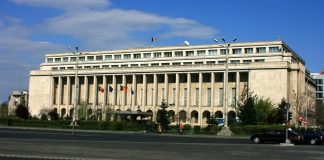The International Telecommunication Union (ITU) supports technical studies and the permanent engagement between governments, industry and other stakeholders to improve the reliability, security and interoperability of urban Information and Communication Technology (ICT) infrastructure, as well as the use of this infrastructure to reduce energy consumption, enhance services and improve the quality of life for city residents, the organization said in a release, according to Agerpres.
ITU and its members within ITU-T Study Group 20, which is dedicated to the Internet of Things (IoT), smart cities and communities, have developed international standards that establish technical criteria, processes and practices to enable the coordinated development of technologies dedicated to the Internet of Things for smart and sustainable cities.
„Most recently, the Study Group has been working on topics such as AI, blockchain, communication, machine-to-machine communication and Big Data aspects of IoT. The ITU-T Study Group 20 is developing standards on digital inclusion in smart cities, next-generation urban assessments, a maturity model for digital supply chains, digital transformation in smart cities, crowdsourcing for urban infrastructure monitoring, smart fire protection, smart buildings, data middle-platform in IoT, among others,” states the cited source.
In October 2021, ITU-T Study Group 20 established the Focus Group on „Artificial Intelligence (AI) and Internet of Things (IoT) for Digital Agriculture” (FG-AI4A), which will examine the potential of the two technologies and other emerging technologies for supporting data collation, improving agriculture systems modelling, and fostering effective communication for the optimization of agricultural production processes. These activities of FG-AI4A will be conducted in close collaboration with the Food and Agriculture Organization of the United Nations (FAO) to underscore the existing gaps in current standardization terrain on digital agriculture. ITU has also recently developed standards ensuring the security of networks in urban areas, including for 5G systems, thus helping make smart sustainable cities a reality.
According to global statistics, more than half of the world’s people live in cities, and by 2050, urban population will account for nearly seven in ten. Cities account for more than 70 percent of global carbon emissions and 60-80 percent of energy consumption.
Agerpres




